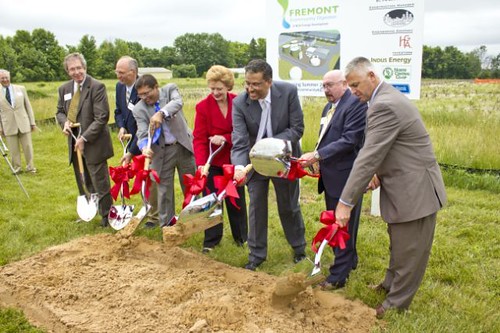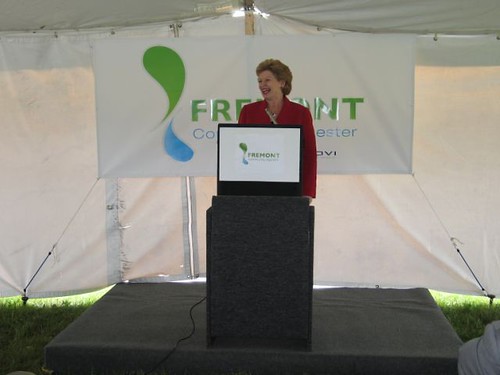
Michigan always has unpredictable weather, and Friday’s was exactly what one would expect – unexpected. I’m sure when they scheduled the groundbreaking for the Fremont community anaerobic digester, NOVI Energy assumed that late June would see warm weather and clear skies. Instead, the temperature was in the low 60s with scattered rain. This is no doubt why NOVI Energy also put up two large tents. Weather aside, the groundbreaking event was a huge success.
USDA Rural Development State Director for Michigan James J. Turner joined Senator Debbie Stabenow, chairwoman of the U.S. Senate Committee on Agriculture, Nutrition and Forestry and local officials in celebrating the new facility.
Anaerobic digesters are not new in Michigan – many farms have them and USDA Rural Development has taken a leading role in funding them. What sets Fremont apart is the scale – it will take in the waste of an entire community and the electricity and byproducts it generates will likewise be provided on a wider basis.
The project will be one of the first commercial-scale anaerobic digesters in the United States and will convert organic waste products – including farm and food processing waste – into biogas which is used to generate electricity. The facility will process more than 100,000 tons of waste annually, reducing landfill usage and improving the quality of agricultural runoff. In addition, the solid byproducts can be used for soil amendments and cow bedding.
USDA provided a loan guarantee to finance the project, which has a total cost of $22 million.

“Fremont Community Digester is demonstrating firsthand the important role West Michigan agriculture plays in developing new clean energy alternatives, which will create new jobs and protect our environment,” said Senator Stabenow.
More than 120 people were at the event, showing just how investing the community and region is in this exciting new project.
To learn more about USDA renewable energy programs, click here.
